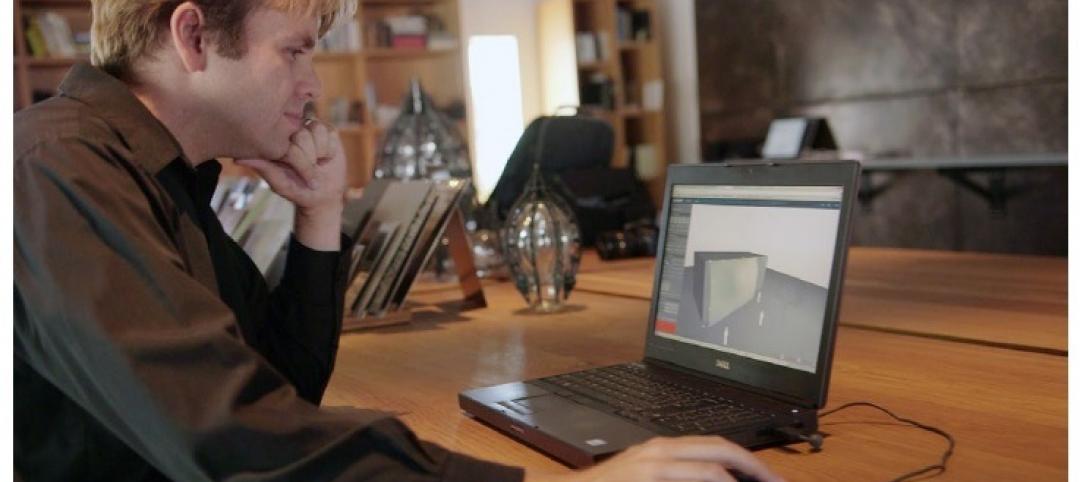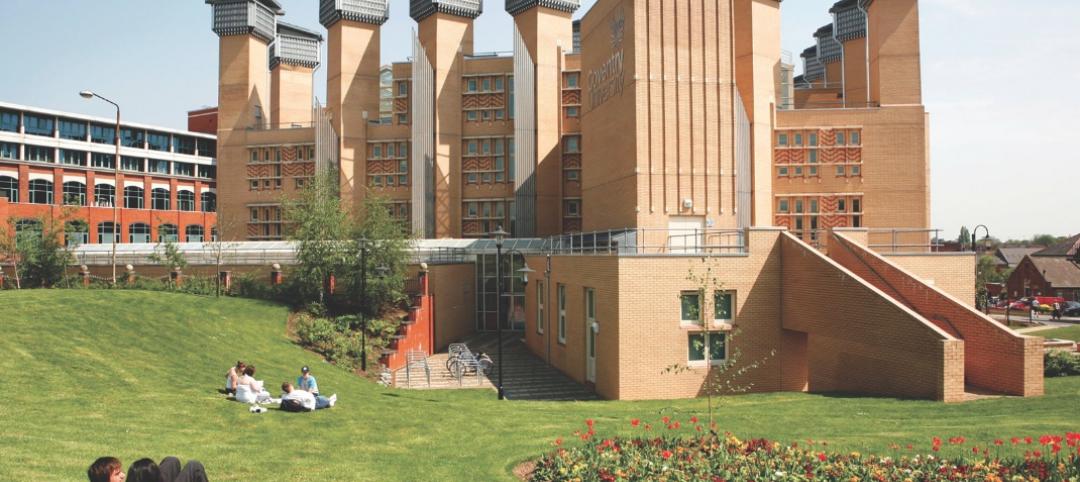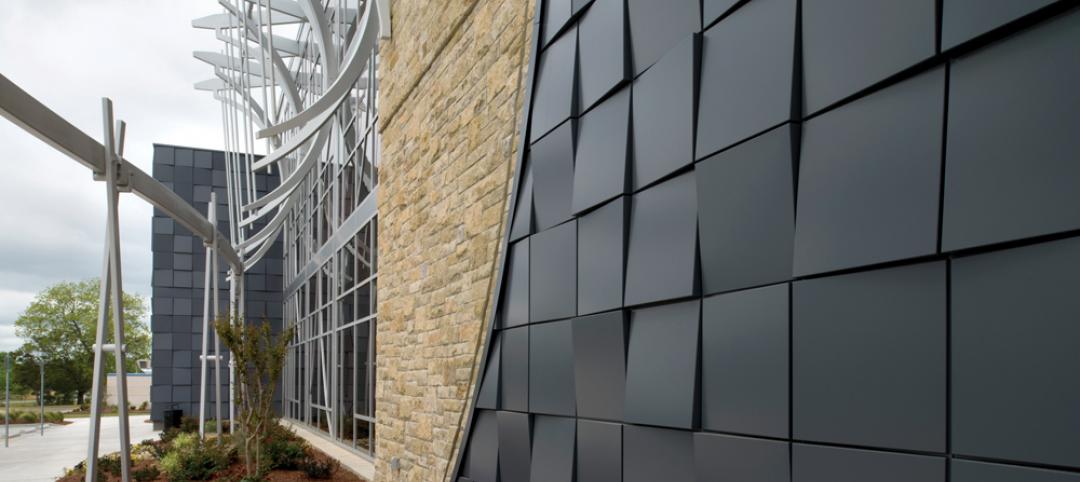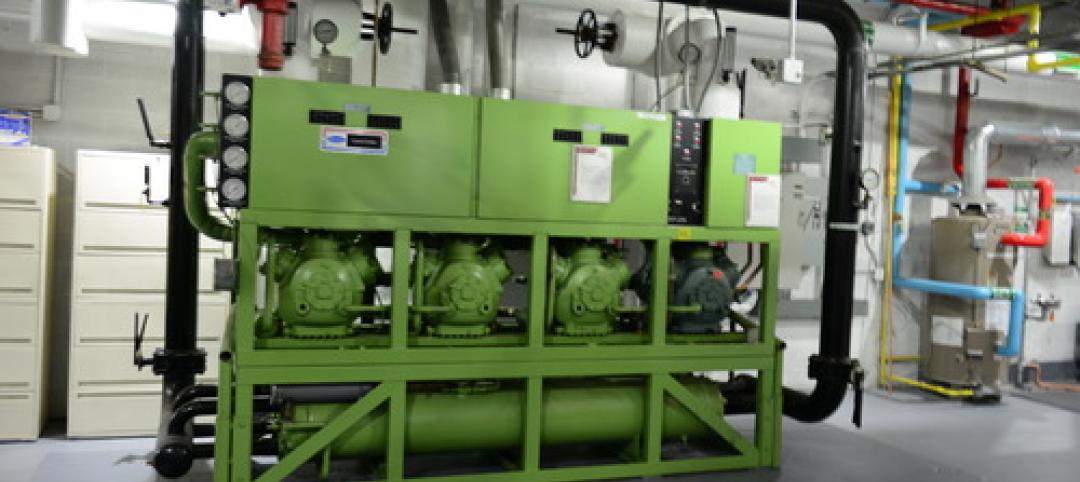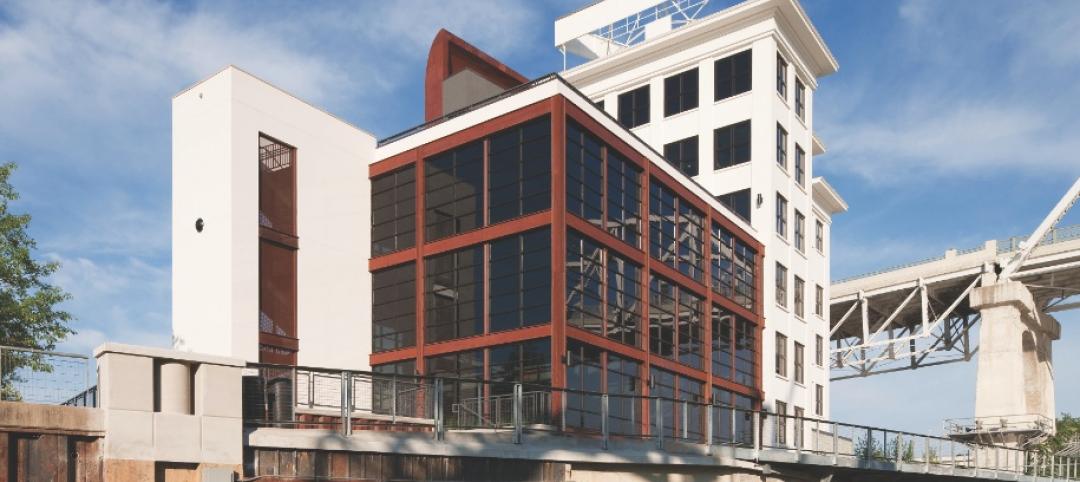University of Illinois at Urbana-Champaign Chancellor Robert Jones and local academic and civic leaders recently broke ground on a new Campus Instructional Facility that is meant to celebrate the cooperation between architecture and engineering.
The structure celebrates how architecture and engineering work together and is meant to enhance such collaboration. Designed by Skidmore, Owings & Merrill LLP (SOM), the building will have flexible, open spaces for learning. It also will include collaboration spaces that will be flexible enough to meet the evolving needs of the university community.
See Also: Curtin University library redevelopment will modernize iconic campus structure
“The design of the Campus Instructional Facility blends the rich history of the University of Illinois with its progressive, technology-focused approach to learning. In designing the building, we sought to celebrate the intersection of architecture and engineering, while creating an environment where experimentation and invention could thrive,” says Brian Lee, Design Partner.
Situated adjacent to the main engineering quadrangle at Springfield Avenue and West Wright Street, the building will be used for contemporary teaching and learning, with a variety of types of spaces designed to enhance collaboration between students and faculty. Additionally, this focus is meant to encourage and develop new hands-on learning technologies.

“The Campus Instructional Facility Project will ensure that we continue to create learning environments that inspire collaboration and interactive education for our students. We believe this facility will be a catalyst for innovation and creativity,” says Chancellor Robert Jones.
The 122,000-square-foot, four-story building will have spaces for lecture, classroom, collaboration, social environments, and for other uses. A central spine in the building brings together its public spaces and enables views across all floors as well as views of the engineering quadrangle. A 60-foot long-span space with flexible partitions will allow large class configurations; classrooms will be distributed along the building’s core. A 500-seat auditorium will be in the basement. The building’s 23 active learning and traditional classrooms will range in size, from small spaces for as few as 24 students, to the large auditorium
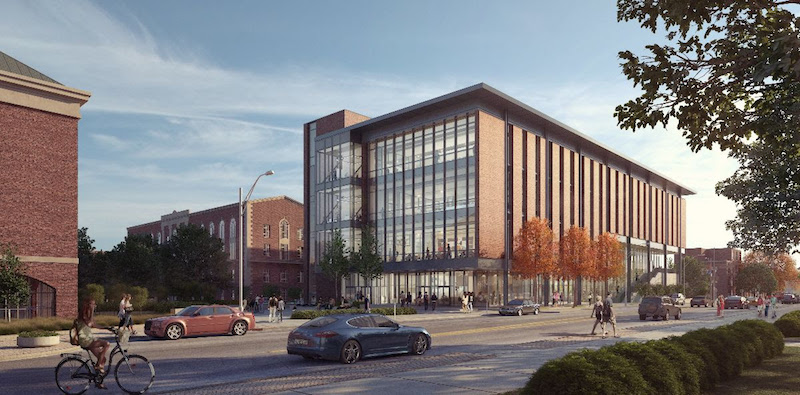
The building is scheduled to be completed in 2021. It’s state-of-the-art approach to learning reflects the dynamic nature of technological and organizational change in the architecture, engineering, and construction industry. Tech tools are bringing various disciplines together, creating smarter projects.
“SOM was built on the importance of collaboration between architects and engineers, and that spirit continues to be championed today. We are thrilled to have the opportunity to create a home for interdisciplinary learning and have an impact on the education of future students,” says William F. Baker, Structural Engineering Partner, and University of Illinois Engineering alumnus.
Related Stories
| Jan 13, 2014
Custom exterior fabricator A. Zahner unveils free façade design software for architects
The web-based tool uses the company's factory floor like "a massive rapid prototype machine,” allowing designers to manipulate designs on the fly based on cost and other factors, according to CEO/President Bill Zahner.
| Jan 11, 2014
Getting to net-zero energy with brick masonry construction [AIA course]
When targeting net-zero energy performance, AEC professionals are advised to tackle energy demand first. This AIA course covers brick masonry's role in reducing energy consumption in buildings.
| Jan 8, 2014
Strengthened sprinkler rules could aid push for mid-rise wood structures in Canada
Strengthened sprinkler regulations proposed for the 2015 National Building Code of Canada (NBCC) could help a movement to allow midrise wood structures.
Smart Buildings | Jan 7, 2014
9 mega redevelopments poised to transform the urban landscape
Slowed by the recession—and often by protracted negotiations—some big redevelopment plans are now moving ahead. Here’s a sampling of nine major mixed-use projects throughout the country.
| Dec 13, 2013
Safe and sound: 10 solutions for fire and life safety
From a dual fire-CO detector to an aspiration-sensing fire alarm, BD+C editors present a roundup of new fire and life safety products and technologies.
| Dec 10, 2013
16 great solutions for architects, engineers, and contractors
From a crowd-funded smart shovel to a why-didn’t-someone-do-this-sooner scheme for managing traffic in public restrooms, these ideas are noteworthy for creative problem-solving. Here are some of the most intriguing innovations the BD+C community has brought to our attention this year.
| Nov 27, 2013
Wonder walls: 13 choices for the building envelope
BD+C editors present a roundup of the latest technologies and applications in exterior wall systems, from a tapered metal wall installation in Oklahoma to a textured precast concrete solution in North Carolina.
| Nov 26, 2013
Construction costs rise for 22nd straight month in November
Construction costs in North America rose for the 22nd consecutive month in November as labor costs continued to increase, amid growing industry concern over the tight availability of skilled workers.
| Nov 25, 2013
Building Teams need to help owners avoid 'operational stray'
"Operational stray" occurs when a building’s MEP systems don’t work the way they should. Even the most well-designed and constructed building can stray from perfection—and that can cost the owner a ton in unnecessary utility costs. But help is on the way.
| Nov 15, 2013
Greenbuild 2013 Report - BD+C Exclusive
The BD+C editorial team brings you this special report on the latest green building trends across nine key market sectors.



